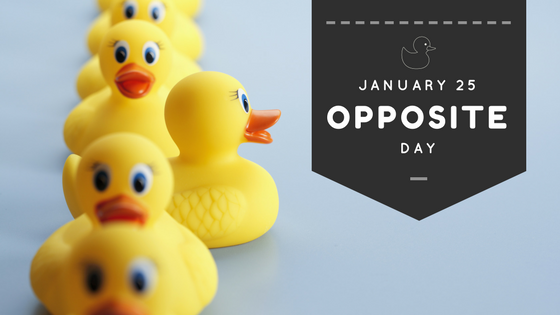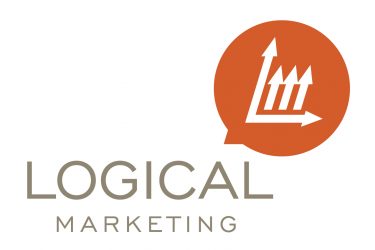¡ January 25 is Opposite Day !
Sounds like an episode from Jerry Seinfeld. The one where George decides if he does everything opposite from how he normally does things, life gets better.
A different perspective
You have done this before. You drive the opposite way home or to the office and the road looks different (e.g., when driving south, I nearly always miss the turn into my neighborhood because it looks so different). You sit in the passenger seat and see businesses you had not noticed before.
What could you do to get a different perspective on your marketing strategy? your customer segments? your partners in your target market?
The “Tiny House” movement is an Opposite Strategy to home ownership.
The “Cut the Cord” movement is an Opposite Tactic for reducing entertainment costs.
“Minimalism” is an Opposite Way of Life for reducing clutter, right-sizing costs, and improving quality of life.
If you buy, sell. If you sell, buy.
Work on the floor.
Run a focus group with past customers.
Do something that is different to see your world, your business, and your strategies from an entirely different perspective.
Change it up. Examine the “we always do”
In a Netflix movie on Queen Victoria, Prince Albert walks into a room to see the staff setting the table to serve a meal for a king who had been dead for 20 years. Because “that’s how we always do it.” No orders to stop setting the table, so the table kept getting set for 365 days for over 20 years. That’s 7300 uneaten meals.
You may think your organization is not quite as silly. Maybe it is. Maybe it isn’t.
I am sure there are things you do that should be re-examined, questioned, and either improved or stopped.
Blue ocean strategy
A good read, “Blue Ocean Strategy“, gets its title from a strategy of sailing into “clean” air. When you sail as part of a pack, only the lead boat gets good wind. Everyone else gets what is called “dirty air”.
Dirty air is slower.
Dirty air comes from a less preferential angle, influenced by the sails it hits before yours.
Dirty air is more turbulent.
The lead boat gets good wind. To get out of “dirty air” one must sail away from the pack.
Are you doing what everyone else is doing?
Is it time to sail away from the pack?
An excellent tool to examine how you might find new opportunities and sail away from the pack is to use Osterwalder’s Business Model Canvas to examine your model versus what your customers may want.
Change up a revenue source (rent versus sell, pay per use, subscriptions)?
Change up a distribution system?
Change a partner or supply chain?


